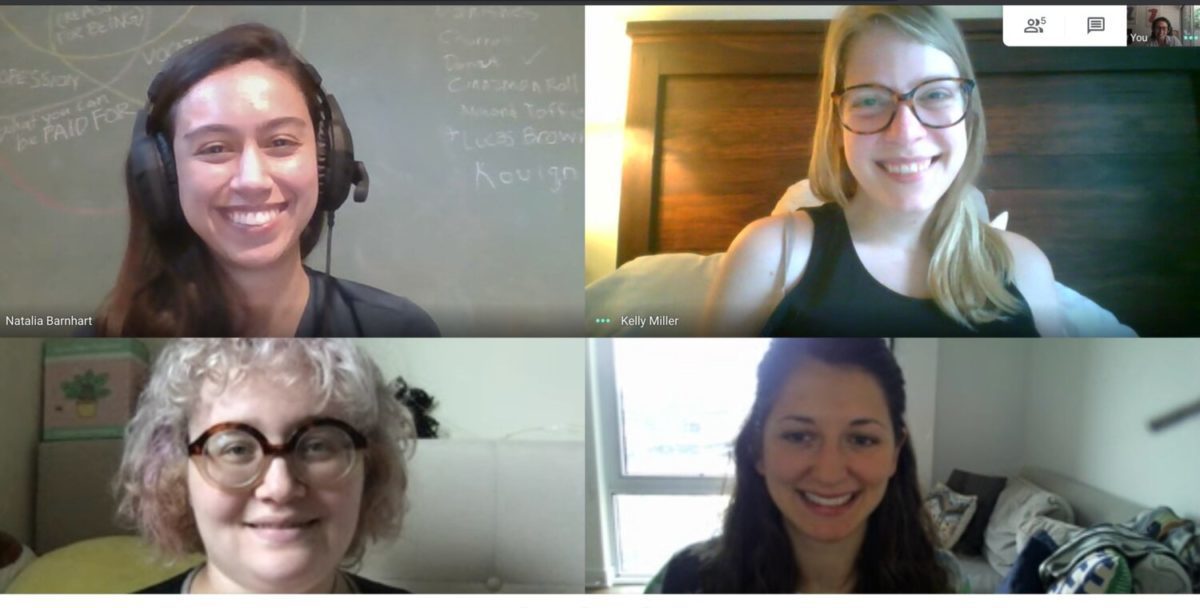Look, we all know that everything is automatically different and better now that it’s January 2021 and not December 2020. That’s just what happens once we’re past midnight on New Year’s Eve, right?
As Monday’s return to work showed, not so much.
Most professionals in the tech space are still stuck social distancing and working from home. We’ll be living with virtual meetings, networking and hangouts for at least another few months. While it’s impossible to recreate the intimacy of in-person relationships, tech pros were able to transition to all-remote-everything easier than most. And they stepped up to fill in the gap quickly — from coworking pivots to finding surprising perks to virtual events.
As another year begins, it’s a chance to take stock of the approaches that are working. So we asked technologists how they’re finding community in a time of mainly digital interaction, nearly 10 months in.
Niche meetups have long been a standard of local tech communities. Once they pivoted to virtual, they quickly became places where technologists could continue to share lessons and meet new people. That’s continued to be true.
“Local groups have been a savior,” said D.C.’s Melanie Laffin, senior lead data scientist at Booz Allen Hamilton and co-organizer of Tech, Rebalanced, a volunteer-based nonprofit that gathers coders and tech strategists of all levels for learning and civic hacking. “Obviously being involved with Tech, Rebalanced has really opened doors, but I try to attend other meetups for groups that I’m both naturally a part of,” such as AI groups and groups specifically for women, as well as “groups of which I’m not immediately obviously a member,” like Black or Latinx tech groups.
There’s also an opportunity to expand beyond local attendance at virtual events, making them more accessible.
“I’ve remotely attended some remote meetups — NYC.rb and Philly.rb — and I’ve had people from all over the world attend the Philly.rb meetup,” said co-organizer Ernesto Tagwerker, who’s also founder and CTO of OmbuLabs. (Looking to boost attendance at your own local tech meetup? Read Reactadelphia organizer Domitrius Clark’s advice on how to make your virtual tech meetup a success.)
Sundi Myint, a D.C.-based developer at dev agency SmartLogic, also finds community through the DC |> Elixir meetup she co-organizes and other groups. But connections are forged, too, through the podcast she co-hosts, “Elixir Wizards.”
“I have this really awesome, rare opportunity to chat with Elixir developers from all over the world in a way that you only see in between tracks at in-person conferences,” Myint said. “I hope that the listeners of our podcast get a similar sense of community from the episodes, even if they’re not the ones having the conversations.”
Social media has played an increasing role in creating chance encounters for local technologists.
“During the pandemic, it can be a little more difficult to connect with others locally. Before the pandemic, Baltimore Womxn in Tech held some great in-person events and meetups where I was able to meet other women technologists in the community,” said Rachel Cohen, a Baltimore-based cyber software engineer at Johns Hopkins Applied Physics Lab. “Now, remotely, I find community on Twitter and with my coworkers!”
Having a targeted ask can help facilitate new connections, too.
“I just message people on LinkedIn a lot to find folks for my podcast and have met a ton of folks that way,” said Laffin, who hosts the Tech, Rebalanced podcast.
And Slack, which has long been a source of connection for technologists (when it’s working properly, that is), has been as important as ever in connecting people within and outside of companies, as well as streaming platforms.
“I usually find community in the PhillyDev Slack, but also in my coworking space’s Discord,” Tagwerker said.







